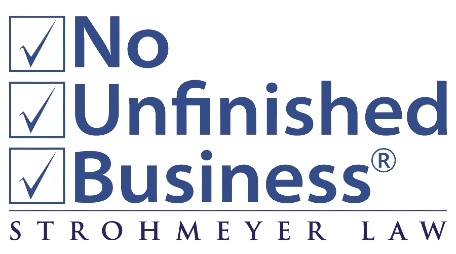Corporate Transparency Act
If you own or do work for business entities, this new filing is federally required starting in 2024. Here’s the scoop.
The Corporate Transparency Act is Coming
What is it?
Back in 2020, Congress enacted the Corporate Transparency Act (CTA), which requires every business entity formed or registered to do business in the US to provide information about the people who ultimately own or control the entity to the Financial Crimes Enforcement Network (FinCEN, which is part of the Department of the Treasury). FinCEN will store that information in a database for use by law enforcement agencies. The database will not be publicly accessible.
Why did they do this?
The CTA follows similar requirements in other nations to combat illicit activity, such as corruption, money laundering, terrorist financing, and tax fraud.
What will need to be done?
Starting on January 1, 2024, “Reporting Companies” (entities subject to the CTA) must file a “beneficial owner report” with FinCEN, which includes each Beneficial Owner’s full legal name, date of birth, and residential street address, an identifying number from a legal document such as a driver’s license or passport, and an image of that identification document.
A Reporting Company created or registered on or after January 1, 2024 will also be required to report its “Company Applicant.” Each Reporting Company can have a maximum of two Company Applicants. These two individuals will be one of these options.
- The individual who is primarily responsible for directing or controlling the filing an application to form or register a corporation, limited liability company, or other similar entity under the laws of a state or Indian Tribe. In other words, the advisor telling someone to form the Reporting Company (e.g., the attorney in charge of planning).
- The individual who directly files the document to create or register the Reporting Company, such as a paralegal who clicks the “submit” button to form the Reporting Company with the Secretary of State.
Top Things to Know Now
1. This requirement will go into effect on January 1, 2024, and there are significant fines and possible jail time for failing to report. Entities, such as corporations, LLCs, limited liability partnerships, limited liability limited partnerships, and business trusts, formed on or after January 1, 2024 will have to report beneficial ownership information within 30 days of being formed. Entities formed before January 1, 2024 must file their initial report before January 1, 2025.
2. Nearly every business will be affected. The reporting requirements will apply to almost every small business that is not a sole proprietorship or general partnership—over 30 million in all.
3. There are 23 exemptions from reporting beneficial owner information, generally for entities already subject to some level of existing government oversight (such as public utilities and 501(c) organizations), or “Large Operating Companies”. But even if an entity is exempt from reporting beneficial owner information, it will likely need to file a report to claim its exempt status.
4. Neither the CTA nor the regulations contain any exemption for legal or accounting firms from reporting beneficial owner information. While there is an exception for the few public accounting firms that are registered under Section 102 of the Sarbanes-Oxley Act, there aren’t many of those firms.
5. An entity can have many Beneficial Owners, and it may not be easy to identify them all. There are two broad categories of beneficial owners: any individual who owns 25 percent or more of the entity, and any individual who, directly or indirectly, exercises “substantial control” over the company. Substantial control is a broad definition that includes, among many other things, serving as a senior officer, having the ability to appoint or remove senior officers, and having the ability to make or approve major decisions for the entity. Because of this broad definition of “substantial control,” individuals with no ownership stake in the entity could be listed as a Beneficial Owner.
6. Entities formed on or after January 1, 2024 will also need to report information about the entity’s Company Applicants. These would be the one or two individuals who assist with the formation of the entity, either by advising on formation of the entity (as an advisor) or by filing the paperwork necessary to form or register the entity to do business.
7. If any of the reported information changes (e.g., if the Beneficial Owner moves, or a an LLC qualifies as a Large Operating Company), then the entity will have 30 days to file an updated report with FinCEN.
So What Exactly Will Need To Be Reported?
Every Reporting Company must report the following information about itself.
* its legal name, and any trade name or assumed name (DBA)
* its address
* the jurisdiction in which it was formed or first registered
* its taxpayer identification number
Every Reporting Company must report the following information about every Beneficial Owner.
* the Beneficial Owner’s full legal name, birthdate, and residential address (and not a P.O. Box or advisor’s address)
* the unique identifying number from a valid government ID, and an image of the that document
Reporting Companies formed or registered on or after January 1, 2024 must also report the following information about each Company Applicant.
* the individual’s full legal name, birthdate, and the Company Applicant’s business address
* the unique identifying number from a valid government ID, and an image of the that document
In Summary
There are many regulations already plainly laid out, but there is still a lot of clarification and explanation of the process yet to come from FinCEN. Talk to your advisors to ensure you and your entities are in compliance, and follow our firm for more updates as they become available.


